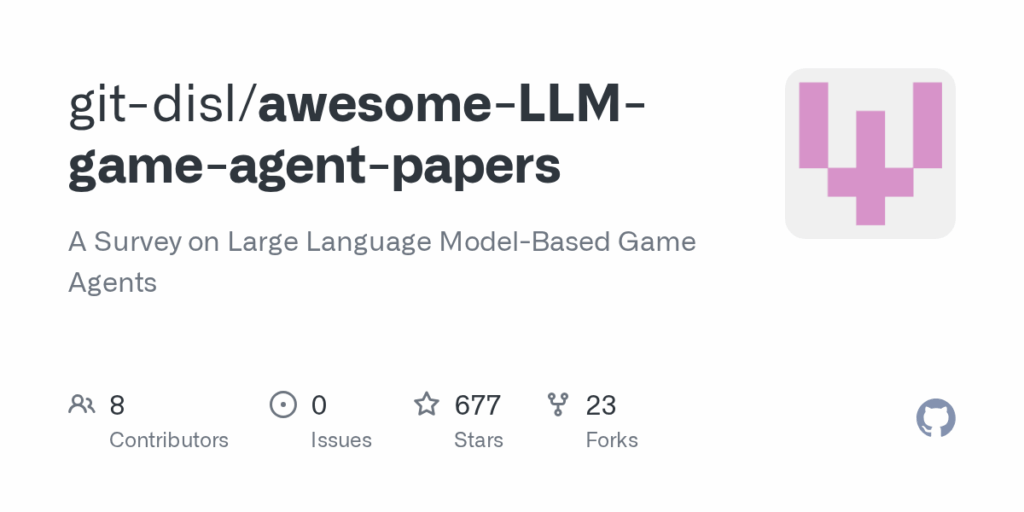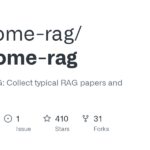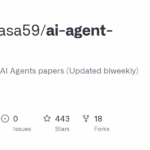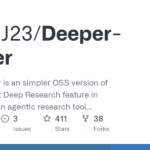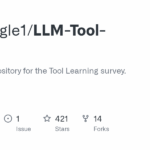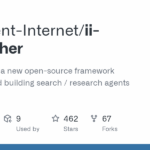awesome LLM game agent papers
Basic Information
This repository is a curated, continuously updated survey and bibliography of research on large language model based game agents. It collects must-read papers and accompanying code references organized by game types such as text adventure, video adventure, crafting and exploration (including Minecraft and Crafter), simulation, competition, cooperation, communication, action games, dialogue and story generation, and benchmarks. The README lists papers with year, title and venue when available, and frequently provides links to papers and code. The project is positioned as a reference for researchers, practitioners and students tracking progress in LLM agents for games and interactive environments. The README includes citation metadata for the survey paper and a maintainer contact email, and it notes that the list is updated regularly with the last recorded update on 2025/08/04.

